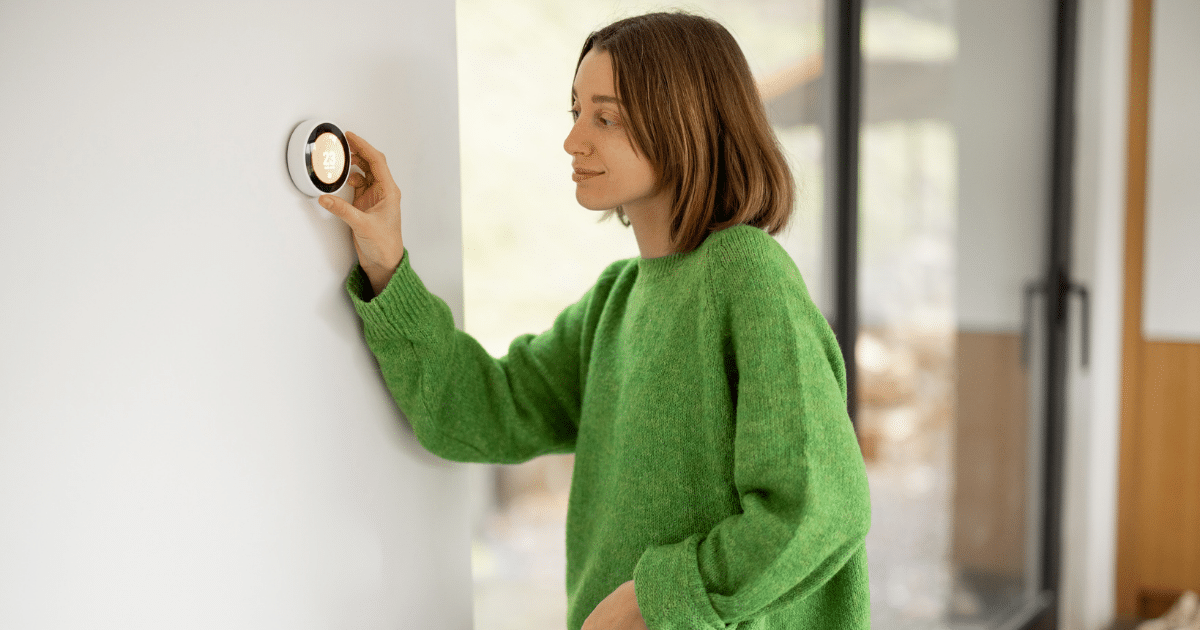
Contents:
Creating energy efficient home improvements not only helps the environment but also saves you money in the long run. From simple changes to larger investments, this guide will provide you with practical tips and detailed information on energy efficient home improvements. Discover how to optimise your home's energy consumption and reduce your carbon footprint.
1. Upgrade your Lighting
LED lights produce significantly less heat compared to incandescent bulbs, which convert a large portion of energy into heat. This reduced heat generation not only contributes to a more comfortable living environment but also helps lower cooling costs during hot summer months.
Compared to traditional incandescent bulbs, LEDs use up to 80% less energy, translating into significant reductions in electricity consumption. By upgrading your lighting to LEDs, you can reduce your reliance on air conditioning and create a more energy-efficient home.
2. Upgrade Insulation
Proper insulation helps prevent drafts and temperature fluctuations, creating a more pleasant indoor atmosphere. By maintaining a consistent temperature, you can reduce hot or cold spots, ensuring that every room in your home is comfortable.
Upgraded insulation can help improve indoor air quality by minimising the intrusion of external pollutants, allergens, and outdoor noise. It acts as a barrier, providing better soundproofing and reducing the penetration of dust, pollen, and other airborne particles, promoting a healthier and more comfortable living space.
Proper insulation includes weatherstripping, investing in energy efficient windows, and installing blinds like roller blinds.
3. Seal Air Leaks
Addressing air leaks not only benefits your home but also contributes to a more sustainable environment. When your heating or cooling systems are overworked due to air leakage, they consume more energy and release additional greenhouse gas emissions into the atmosphere.
By sealing these leaks, you reduce your carbon footprint and lower your home's environmental impact. Creating an energy efficient home improvements through air sealing aligns with global efforts to combat climate change and conserve resources. It is a small but impactful step towards a greener future, promoting sustainability and responsible energy consumption.
4. Upgrade to Energy Efficient Appliances
Energy efficient appliances, such as refrigerators, dishwashers, washing machines, and HVAC systems, are designed to use less energy while delivering the same or even better performance compared to their conventional counterparts. You may drastically minimise your energy use and electricity costs by replacing your outdated, inefficient equipment for energy efficient alternatives.
These appliances are designed to meet strict energy efficiency standards, utilising advanced technologies such as improved insulation, smart controls, and energy-saving modes. Investing in energy efficient appliances not only results in immediate cost savings but also ensures long-term cost efficiency by reducing your reliance on energy resources.
5. Install a Smart Thermostat
With features like geofencing and occupancy sensors, smart thermostats can automatically adjust the temperature based on your presence or absence, ensuring a comfortable environment whenever you're at home.
Some smart thermostats provide insights and reports on your energy usage, allowing you to track and analyse your consumption patterns. This information can help you make informed decisions on how to further optimise your energy usage and reduce waste. They can also be remotely controlled and programmed via mobile apps, allowing you to optimise your home's temperature settings even when you're away.
By intelligently managing your HVAC system, smart thermostats prevent unnecessary energy consumption and minimise wasteful heating and cooling cycles.
6. Harness Solar Power
By generating your electricity, you become less reliant on the traditional power grid and its associated fluctuations in energy prices. Solar panels offer stability and control over your energy supply, ensuring a consistent and predictable source of power. Moreover, solar energy is clean and renewable, producing zero emissions during operation.
By adopting solar power, you actively contribute to reducing greenhouse gas emissions and combating climate change. The environmental benefits of solar panels extend beyond your home, positively impacting the broader community and helping to create a more sustainable future for generations to come.
Conclusion
From small changes like upgrading your lighting and sealing air leaks to larger investments such as upgrading insulation, installing energy-efficient windows, and considering solar panels, each improvement contributes to a more sustainable future.
By embracing energy efficiency, you not only save money on utility bills but also create a comfortable living environment and actively contribute to global efforts in combating climate change.
Remember, energy-efficient home improvements are not only for the environmentally conscious but also for those seeking long-term cost savings and improved comfort.













